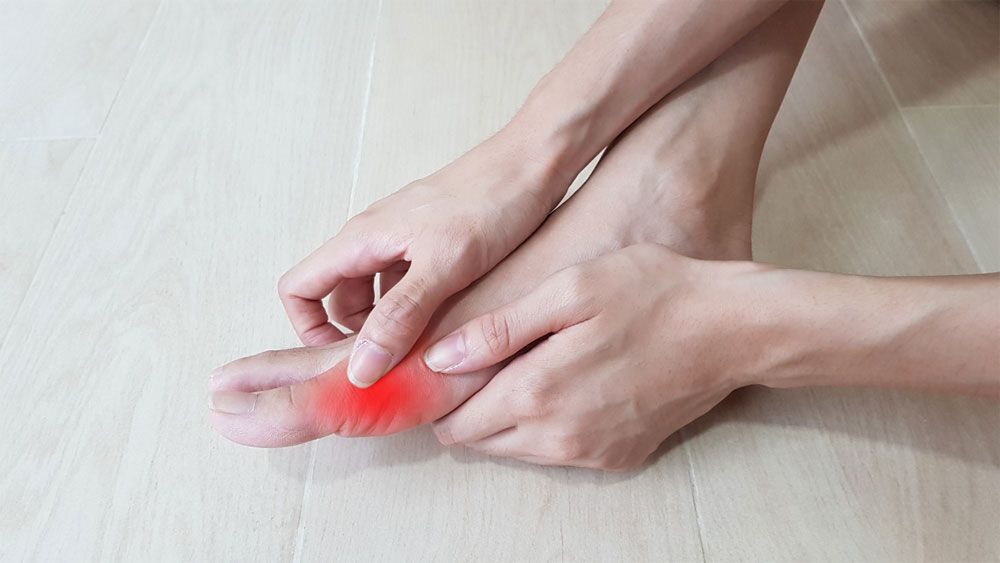You may be surprised to learn that if you are overweight, you have a much greater risk of developing gout. Learn about the connection and what you can do to avoid the painful inflammation associated with gout.
It is true – individuals who are overweight or have obesity have a much greater risk of developing gout. Gout is a type of inflammatory arthritis that causes excruciating pain in the affected joint like the big toe, ankle or even the knee. Uric acid is the culprit that is involved in gout.
You see, obesity is associated with elevated levels of uric acid. Pair this with decreased water intake, a diet rich in meat and sweets, alcohol consumption, and diuretic medication, and you have the recipe for a gout attack. During a gout attack, sharp uric acid crystals are deposited in the joint area, leading to the painful symptoms.
When it comes to gout, where you put on pounds also matters. People who have high visceral or belly fat, even if they’re not overweight, are more likely to develop gout. That may be because belly fat produces more of the inflammatory chemicals that can trigger this disease.
Just as for diabetes, and heart disease, lifestyle changes can help to decrease episodes of gout. One of the best diets for patients with gout is a Mediterranean diet – one that is rich in vegetables and good fats, and low in red meat, processed carbs, and sugars. Hydration is also very important to prevent gout attacks. Working outside in the yard on a hot summer day, maybe even having a beer while working without any hydration can precipitate a gout attack. Of course, exercise and weight loss play a powerful role as well. In fact, just a weight loss of 15 pounds can decrease your blood uric acid level significantly. If you are ready to lose weight and improve your health, we here at Physicians Premiere Weight & Wellness Center are here to help you. Simply visit our website at https://healthymeweightloss.com/ to get started!





